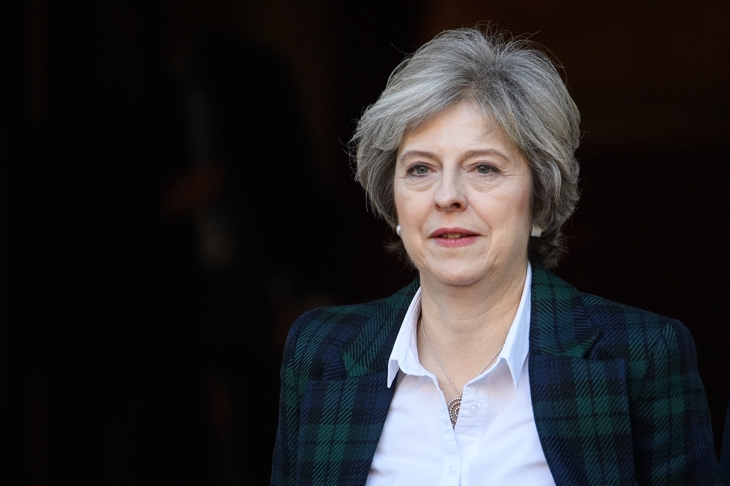Theresa May’s Lancaster House speech sought to answer the question: does the Government have a plan for Brexit? Open Europe’s judgement is that she succeeded. And she also started to set out a wider vision for the UK’s relationship with the EU, linking it both to Britain’s place in the world, and to her own domestic vision – for the sort of country ‘we want to be’.
At first sight the Prime Minister’s 12-point plan for a global Britain seems to be a masterclass in common sense. We welcome her clarity on various points, including that – inevitably – both Houses of Parliament will vote on the UK’s final deal with the EU. Open Europe was pleased by her position on free trade and immigration which appeared sensible and constructive.
We now know for certain that Britain will be leaving the Single Market and will be outside of the substantive elements of the Customs Union including the Common External Tariff and Common Commercial Policy. Britain will be able to make its own trade deals, including the one with the United States which the president-elect offered this week. Theresa May also (in echoes of language used by the Leave Campaign) ruled out adopting any off-the-shelf model of associate EU membership. We will not be like Norway, Iceland or indeed Albania.
The tone of the Prime Minister’s language was well-judged and this speech offered a wider vision for the UK-EU relationship. She had summoned European ambassadors to Lancaster House and took questions from Le Figaro and El Pais. Her positive and constructive language – for example, regarding a new ‘strategic partnership’ based on trade and security – ought to be welcome on the Continent.
She recognised, rather than challenged, the position of EU leaders (including most significantly Angela Merkel) that the four freedoms of the single market are indivisible. Theresa May’s message (perhaps implicitly contra Trump) was that Britain does not want a ‘greater unravelling of the EU’ and that it is in our national interest for the EU to succeed. She committed Britain to being a reliable partner. Her explanation of June’s vote focused more on Britain’s distinctiveness than the EU’s inflexibility.
Yet the Prime Minister also brought a stick as well as a carrot. She expanded points made by the Chancellor in his Welt am Sonntag interview, and by Mark Carney in front of the Treasury Select Committee, that the UK was crucially important to the EU and Britain could play hard ball if required.
Trade is, of course, not a zero-sum game and Theresa May rightly appealed to economic rationality. Open Europe agrees that no deal for Britain would be preferable to a poor deal. The Prime Minister argued that she did not expect the EU to commit the ‘calamitous’ self-harm of seeking to punish Britain. But, in so doing, she underscored that she knows well the desire of some in Brussels and beyond to do just that.
As James Forsyth has predicted the Prime Minister both detailed the importance of Britain’s outstanding intelligence services in protecting European lives and reminded her audience that British troops are stationed in Europe including in Poland and Estonia. Although she was not as crass as to make them explicit bargaining chips, their importance was made clear. She also touted the strength of UK universities and our science and innovation, as well as our global reach including through our UN Security Council permanent membership, expressing a desire to ‘work together more’ on security issues with the EU.
Theresa May said that Britain will remain a magnet for international talent and presented the benefits of immigration for travel, study and work. Nonetheless the Prime Minister was explicitly clear that Britain will control immigration from the EU. Here the devil will be in the detail.
Other points were well-handled – the Prime Minister promised to prioritise resolving the status of EU nationals in the UK, calling this ‘right and fair’. Another priority will be maintaining a common travel area with the Republic of Ireland. And, with the background of a political crisis at Stormont and continued rumblings from the SNP, there was careful language on preserving the union. Theresa May’s acknowledgement of the referendum’s divisiveness was wise. Downing Street also showed its deft media skills by pre-briefing the possibility of a currency dip ensuring that either they had predicted any fall in the pound or that the forex markets would be pleasantly surprised.
While the Prime Minister’s clarity today was welcome – and went about as far as we could have hoped at this stage – Open Europe suspects that we may not receive significant further details of the Government’s thinking for some time: it was not her job, she told us, to fill column inches. Many questions remain unanswered. Briefings today suggest that there will not be a Brexit white paper and Theresa May developed her ’no running commentary’ position by arguing that it was not in the ‘national interest’ for her, or her ministers, to reveal much more about which cards the Government plans to play.
The UK’s objectives are now clearer – the best possible comprehensive UK-EU free-trade agreement, as well as a new strategic partnership with horizontal cooperation on issues such as security and law-enforcement, as well as foreign policy and defence, and a couture deal on customs preserving some common standards but allowing the UK to strike independent trade deals. By acknowledging the importance of phasing Brexit to protect business from cliff edges, and focusing on ends rather than means, Theresa May is giving herself sensible flexibility and wiggle room. Negotiations – as she presciently said – require compromise. We will see how EU leaders, as well as governments and opposition figures across Europe, respond.
Stephen Booth is Acting Director and Director of Policy and Research at Open Europe






Comments